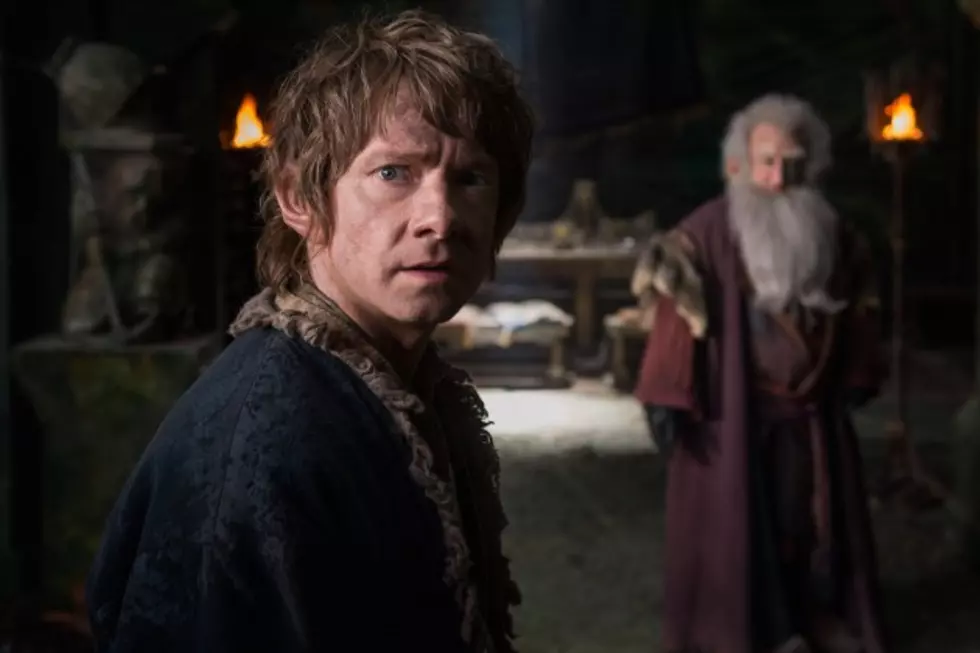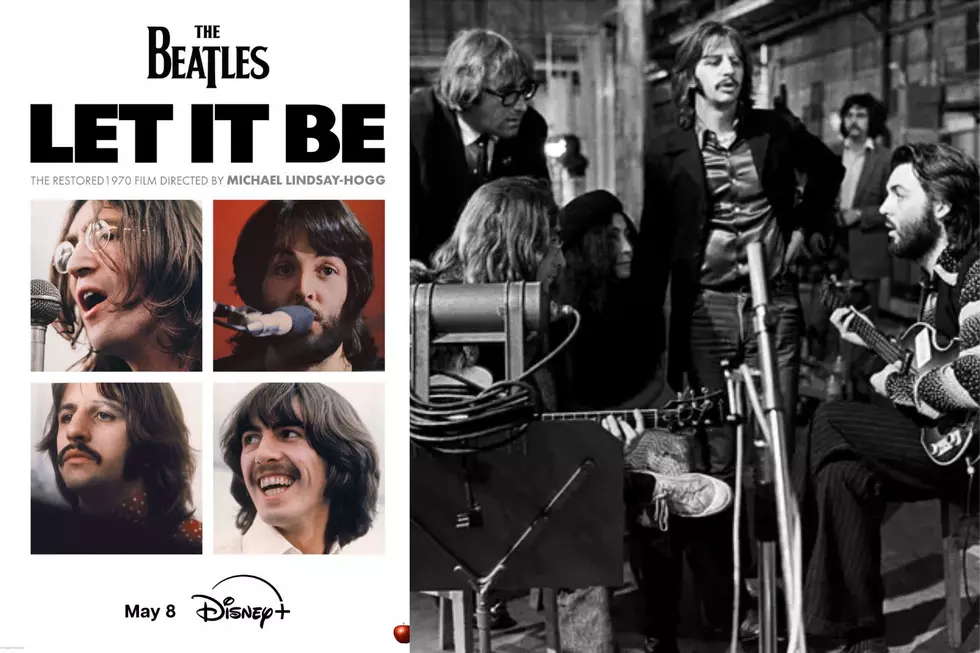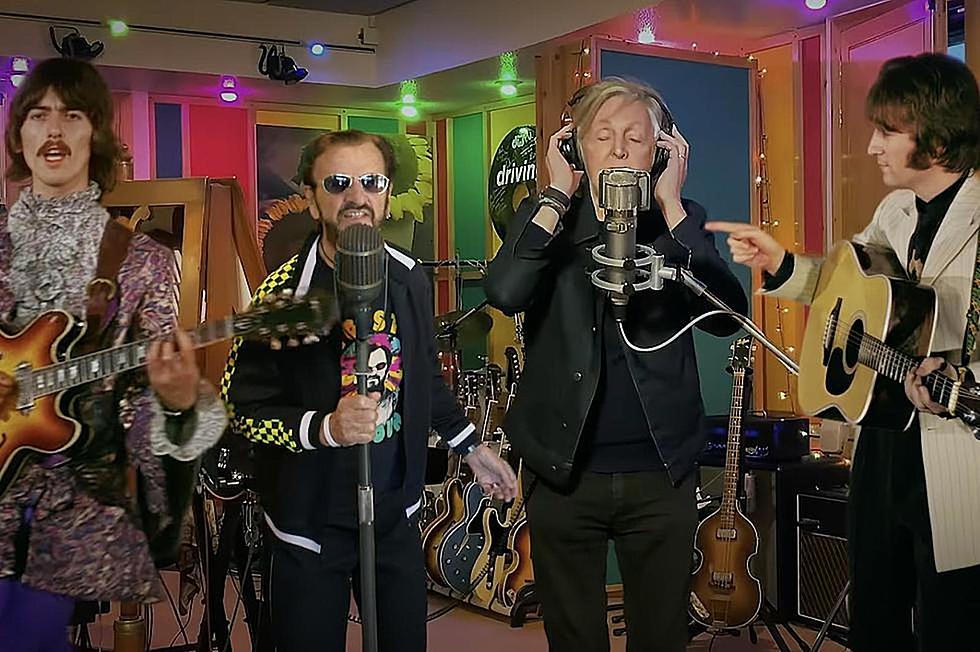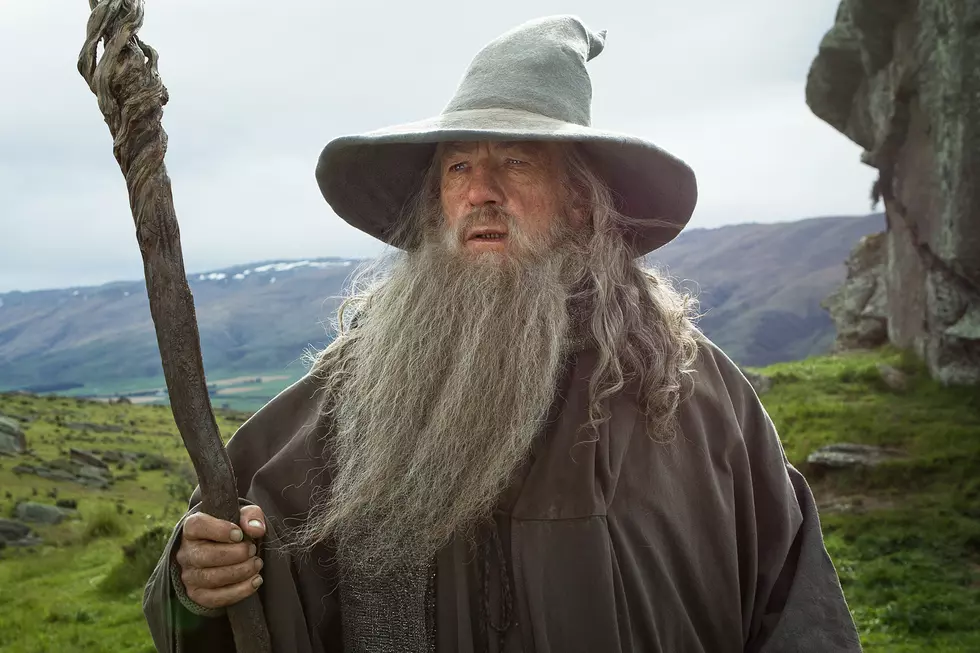
‘The Hobbit: Battle of the Five Armies’ Review: Give Me Back My Precious (Time)
Having gone on an unexpected journey and endured the desolation of Smaug, Peter Jackson’s bloated adaptation of J.R.R. Tolkien’s ‘The Hobbit’ finally comes to ‘The Battle of the Five Armies,’ which is less of a climax to this epic, interminable trilogy than a distended epilogue. After spending two movies and 330 minutes building up the dragon Smaug (voiced by Benedict Cumberbatch) as the ultimate antagonist, he’s eliminated from the story completely in the first ten minutes. He’s gone for good even before the title ‘The Battle of the Five Armies’ appears onscreen.
The remaining two hours-plus concerns the massive and mostly pointless skirmish that follows his defeat. With the dragon literally out of the picture, the previously heroic dwarf Thorin Oakenshield (Richard Armitage) becomes the story’s villain. The elves and humans who helped Thorin and his fellow dwarves on their quest to vanquish Smaug arrive at the Lonely Mountain to claim their rightful piece of the dragon’s treasure, but Thorin, seduced by gold’s corrupting influence, refuses to share his prize. Instead, he calls in reinforcements (including, of all people, a CGI Billy Connolly on a warthog) and prepares for war.
The dwarves are challenged by the elves, led by Thranduil (Lee Pace), and the humans, led by Bard (Luke Evans). Then the evil orcs, commanded by Azog the Defiler (Manu Bennett who, in fairness, doesn’t really defile anything), show up, and attack everyone else. Eventually a fifth army shows up as well, but who exactly they are and why they’re fighting is mostly left to a few lines of dialogue drowned out by the sound of grunts and clanging swords.
The battle itself, which takes up more than half of the film and is interrupted only by occasional character digressions (including a woefully unfunny comic relief figure who dresses like a woman to get out of fighting), is visually impressive and tediously repetitive. Here is the structure: The heroes are brave in the face of impossible odds; they fight valiantly but are overwhelmed; the bad guys get the upper hand and one of the heroes appears defeated; out of nowhere, another member of the good guys—say Legolas (Orlando Bloom) or Gandalf (Ian McKellan)—appears to make the last-minute save. Then everything resets with another subset of heroes, and the whole scenario repeats for an hour with the fewest meaningful casualties possible.
The conflict doesn’t really resolve so much as it stops after a few key players duke it out on top of a mountain. (I guess everyone was tired and went home after that.) A few individual moments are cool (Legolas’ fight with an orc in a crumbling tower is kind of memorable), but the experience of watching this movie is like ordering a 72-ounce steak at a restaurant and then being told you’re not allowed to leave until you eat it all. Sure, the steak’s well-cooked, but the whole thing? And it’s all just steak? Can’t I get, like, a baked potato or some steamed broccoli here? ‘The Battle of the Five Armies’ is just a steak, and an overcooked one at that. There’s no blood in the literal or figurative sense; to earn a PG-13 rating, the computer-generated characters slash at each other with swords that do no visible damage. Peter Jackson has basically made a really good-looking 2-hour video-game cutscene.
Sharp-eyed readers will note that this review is almost over and it hasn’t even mentioned the title character, Bilbo Baggins. That’s because ‘The Hobbit: The Battle of the Five Armies’ barely mentions him as well. Mostly he stands in the background of group shots or appears, swinging his sword, in sporadic cutaway shots. Poor Martin Freeman gets to perform the occasional plot contrivance—stealing a jewel, sneaking around with his magic ring—but he’s basically a glorified extra in his own movie. At one point in the final confrontation between the dwarves and the orcs, he’s knocked unconscious, and then literally sleeps through the 20 most important minutes of the entire trilogy. The MVP Award for the enormous cast belongs to Ian McKellan, who is even more superfluous to the story than Freeman but who invests his superfluousness with an extraordinary amount of gravity, grace, and good humor.
Tolkien completists and folks who just want two hours of mindless 3-D violence will probably find enough to enjoy in this mess. But now that it’s all (finally) over, Jackson’s ‘The Hobbit’ feels like a huge missed opportunity, one that stretched out its source material way past its breaking point for the sake of a huge financial windfall. The only interesting thing about ‘The Battle of the Five Armies’ is the fact that its entire story is motivated by greed. Everyone is fighting over the Lonely Mountain’s enormous treasure; characters repeatedly warn each other, with little success, to beware money’s destructive effect. Thorin ignores the warnings and is transformed by his lust for gold from a noble leader into a covetous scoundrel. But if there is a lesson to be learned here about the danger of extending thin stories out to maximize profits, it went unheeded by the filmmakers.
More From ScreenCrush





![‘Secret Invasion’: How Long Has [Spoiler] Been a Skrull?](http://townsquare.media/site/442/files/2023/06/attachment-SCS1780_101_comp_STE_v0001_00088100_R.jpg?w=980&q=75)



